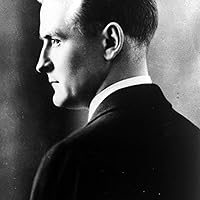Conduct Quotes
Quotes tagged as "conduct"
Showing 1-30 of 105

“Almost all absurdity of conduct arises from the imitation of those whom we cannot resemble.”
― The Rambler
― The Rambler

“Nell," the Constable continued, indicating through his tone of voice that the lesson was concluding, "the difference between ignorant and educated people is that the latter know more facts. But that has nothing to do with whether they are stupid or intelligent. The difference between stupid and intelligent people—and this is true whether or not they are well-educated—is that intelligent people can handle subtlety. They are not baffled by ambiguous or even contradictory situations—in fact, they expect them and are apt to become suspicious when things seem overly straightforward.”
― The Diamond Age: Or, a Young Lady's Illustrated Primer
― The Diamond Age: Or, a Young Lady's Illustrated Primer

“Causing any damage or harm to one party in order to help another party is not justice, and likewise, attacking all feminine conduct [in order to warn men away from individual women who are deceitful] is contrary to the truth, just as I will show you with a hypothetical case. Let us suppose they did this intending to draw fools away from foolishness. It would be as if I attacked fire -- a very good and necessary element nevertheless -- because some people burnt themselves, or water because someone drowned. The same can be said of all good things which can be used well or used badly. But one must not attack them if fools abuse them.”
― The Book of the City of Ladies
― The Book of the City of Ladies

“The soul grows into lovely habits as easily as into ugly ones, and the moment a life begins to blossom into beautiful words and deeds, that moment a new standard of conduct is established, and your eager neighbors look to you for a continuous manifestation of the good cheer, the sympathy, the ready wit, the comradeship, or the inspiration, you once showed yourself capable of. Bear figs for a season or two, and the world outside the orchard is very unwilling you should bear thistles.”
― Rebecca of Sunnybrook Farm
― Rebecca of Sunnybrook Farm

“The man or the woman in whom resides greater virtue is the higher; neither the loftiness nor the lowliness of a person lies in the body according to the sex, but in the perfection of conduct and virtues.”
― The Book of the City of Ladies
― The Book of the City of Ladies

“A storyteller who provided us with such a profusion of details would rapidly grow maddening. Unfortunately, life itself often subscribes to this mode of storytelling, wearing us out with repetition, misleading emphases and inconsequential plot lines. It insists on showing us Bardak Electronics, the saftey handle in the car, a stray dog, a Christmas card and a fly that lands first on the rim and then in the centre of the ashtray.
Which explains how the curious phenomenon whereby valuable elements may be easier to experience in art and in anticipation than in reality. The anticipatory and artistic imaginations omit and compress; they cut away the periods of boredom and direct our attention to critical moments, and thus, without either lying or embellishing, they lend to life a vividness and a coherence that it may lack in the distracting wooliness of the present.”
― The Art of Travel
Which explains how the curious phenomenon whereby valuable elements may be easier to experience in art and in anticipation than in reality. The anticipatory and artistic imaginations omit and compress; they cut away the periods of boredom and direct our attention to critical moments, and thus, without either lying or embellishing, they lend to life a vividness and a coherence that it may lack in the distracting wooliness of the present.”
― The Art of Travel

“[J]ust the sight of this book, even though it was of no authority, made me wonder how it happened that so many different men – and learned men among them – have been and are so inclined to express both in speaking and in their treatises and writings so many wicked insults about women and their behaviour. Not only one or two ... but, more generally, from the treatises of all philosophers and poets and from all the orators – it would take too long to mention their names – it seems that they all speak from one and the same mouth. Thinking deeply about these matters, I began to examine my character and conduct as a natural woman and, similarly, I considered other women whose company I frequently kept, princesses, great ladies, women of the middle and lower classes, who had graciously told me of their most private and intimate thoughts, hoping that I could judge impartially and in good conscience whether the testimony of so many notable men could be true. To the best of my knowledge, no matter how long I confronted or dissected the problem, I could not see or realise how their claims could be true when compared to the natural behaviour and character of women.”
― The Book of the City of Ladies
― The Book of the City of Ladies
“I send my friends e-mail messages about the progress of my garden, especially of my roses. It left them with the impression, I think, that I was concerned with nothing else. I felt no urgency in correcting that notion. People obsessed with their gardens have probably caused the least suffering in the world of any category of men.”
―
―

“You Americans are a very singular people," he later recalled to one of his friends. "I went with my automaton all over my own country—the Germans wondered and said nothing. In France they exclaimed, Magnifique! Merveilleux! Superbe! The English set themselves to prove—one that it could be, and another that it could not be, a mere mechanism acting without a man inside. But I had not been long in your country, before a Yankee came to see me and said, 'Mr Maelzel, would you like another thing like that? I can make you one for five hundred dollars.' I laughed at his proposition. A few months afterwards, the same Yankee came to see me again, and this time he said, 'Mr Maelzel, would you like to buy another thing like that? I have one already made for you.”
― The Turk: The Life and Times of the Famous Eighteenth-Century Chess-Playing Machine
― The Turk: The Life and Times of the Famous Eighteenth-Century Chess-Playing Machine

“The great proliferation of museums in the nineteenth century was a product of the marriage of the exhibition as a way of awakening intelligent interest in the visitor with the growth of collections that was associated with empire and middle-class affluence. Attendance at museums was as much associated with moral improvement as with explanation of the human or natural world.”
― Dry Store Room No. 1: The Secret Life of the Natural History Museum
― Dry Store Room No. 1: The Secret Life of the Natural History Museum

“Tell people who you are without saying a word.”
― Honor He Wrote: 100 Sonnets For Humans Not Vegetables
― Honor He Wrote: 100 Sonnets For Humans Not Vegetables

“-The conduct and action define one's character since it executes a way of life that establishes the quality and system of society.”
―
―

“Twenty miles from the city a pair of enormous eggs, identical in contour and separated only by a courtesy bay”
― The Great Gatsby
― The Great Gatsby

“Honor He Wrote Sonnet 62
Belief sustains a person,
But behavior sustains a society.
Belief has nothing to do with truth,
It is just a matter of mental necessity.
Often our belief defies all reason,
That's absolutely okay to a great extent.
What's not okay is to impose it on others,
To sentence others to our imprisonment.
I believe, that my teacher watches over me,
Even though he walks the earth no more.
This belief has nothing to do with your life,
But it helps me walk past my crippling woe.
All beliefs are good beliefs with or without reason,
If they help you in life to become a better person.”
― Honor He Wrote: 100 Sonnets For Humans Not Vegetables
Belief sustains a person,
But behavior sustains a society.
Belief has nothing to do with truth,
It is just a matter of mental necessity.
Often our belief defies all reason,
That's absolutely okay to a great extent.
What's not okay is to impose it on others,
To sentence others to our imprisonment.
I believe, that my teacher watches over me,
Even though he walks the earth no more.
This belief has nothing to do with your life,
But it helps me walk past my crippling woe.
All beliefs are good beliefs with or without reason,
If they help you in life to become a better person.”
― Honor He Wrote: 100 Sonnets For Humans Not Vegetables

“Make behavior your background, make behavior your culture, make behavior your identity, and the world will have all the uplift it needs.”
― The Gentalist: There's No Social Work, Only Family Work
― The Gentalist: There's No Social Work, Only Family Work
“The one principle which has controlled my conduct while a cadet, and which is apparent throughout my narrative, is briefly this: to find, if possible, for every insult or other offence a reason or motive which is consistent with the character of a gentleman. Whenever I have been insulted, or any thing has been done or said to me which might have that construction, I have endeavored to find some excuse, some reason for it, which was not founded on prejudice or on baseness of character or any other ungentlemanly attribute; or, in other words, I wanted to prove that it was not done because of my color. If I could find such a reason—and I have found them—I have been disposed not only to overlook the offence, but to forgive and forget it.”
― The Colored Cadet at West Point: Autobiography of Lieutenant Henry Ossian Flipper, U. S. A., First Graduate of Color from the U. S. Military Academy
― The Colored Cadet at West Point: Autobiography of Lieutenant Henry Ossian Flipper, U. S. A., First Graduate of Color from the U. S. Military Academy
“Once Kama sets foot in the heart, a thousand vulnerabilities appear and all energy and strength dissipate. What would good conduct hold on to then? From what would humility and respectfulness draw their strength? How does one preserve one's steadiness? How does one rein in the senses? How do you move away from conduct that brings ill fame? By what light can one remove the darkness of ignorance that blinds the eye and binds one to tainted ways? What indeed can a youth perceive in the absence of maturity of vision?”
― Kadambari
― Kadambari
“But maturity of vision does not come even with age, and so how could it appear in youth? Only some fortunate ones have purity of conduct keeping pace with the whitening of hair.”
― Kadambari
― Kadambari
“The best literature, still with ancient power in forming character while shaping conduct is the Holy Scriptures”
―
―
“Book learning education is not enough. True education should help shape people's conduct and development of good character.”
―
―

“Hardly any part of anyone's conduct concerns only himself.”
― Ethics: Inventing Right and Wrong
― Ethics: Inventing Right and Wrong
All Quotes
|
My Quotes
|
Add A Quote
Browse By Tag
- Love Quotes 97k
- Life Quotes 75.5k
- Inspirational Quotes 72.5k
- Humor Quotes 43.5k
- Philosophy Quotes 29.5k
- Inspirational Quotes Quotes 27k
- God Quotes 26k
- Truth Quotes 23.5k
- Wisdom Quotes 23.5k
- Romance Quotes 23k
- Poetry Quotes 22k
- Death Quotes 20k
- Happiness Quotes 18.5k
- Life Lessons Quotes 18.5k
- Hope Quotes 18k
- Faith Quotes 18k
- Quotes Quotes 16.5k
- Inspiration Quotes 16.5k
- Spirituality Quotes 15k
- Religion Quotes 15k
- Motivational Quotes 15k
- Writing Quotes 14.5k
- Relationships Quotes 14.5k
- Life Quotes Quotes 14k
- Love Quotes Quotes 13.5k
- Success Quotes 13.5k
- Time Quotes 12.5k
- Motivation Quotes 12k
- Science Quotes 11.5k
- Knowledge Quotes 11k



